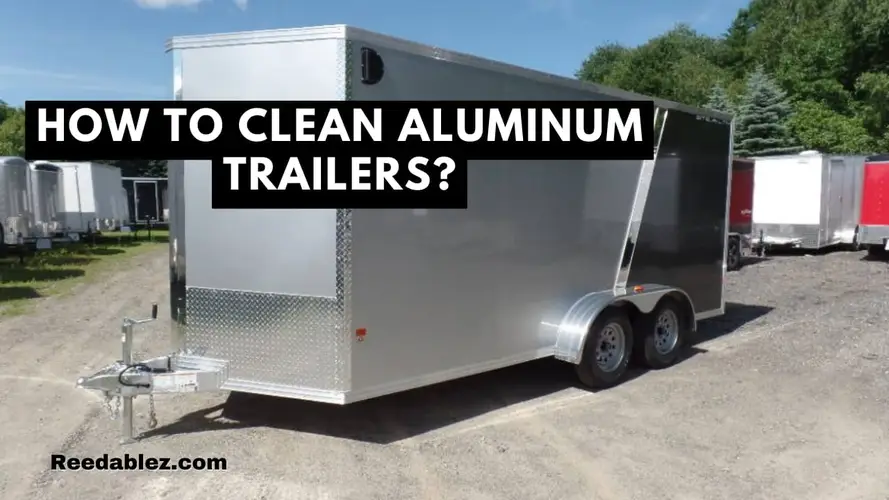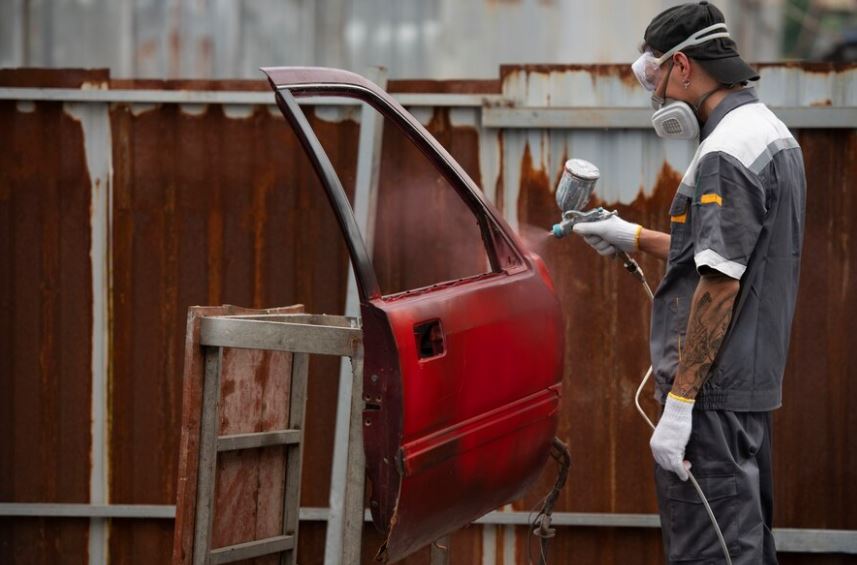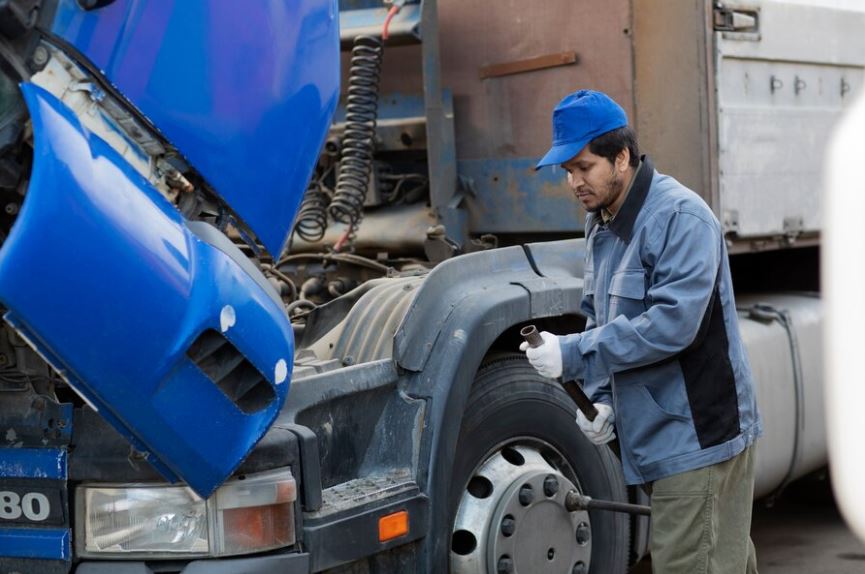How to clean gpu?
April 14, 2018

Aluminum trailers are famous for hauling various loads with lightweight and durable construction. However, exposure to the elements, road grime, and environmental factors can affect their appearance. So, how do you clean an aluminum trailer?
To clean aluminum trailers, start by rinsing off loose dirt with a pressure washer or hose. Prepare a mild detergent or specialized aluminum cleaner solution. Scrub the trailer using a soft brush, focusing on seams and wheel wells. Thoroughly rinse and dry with microfiber towels. Apply aluminum polish or wax for protection and a lasting shine.
This extensive guide will explore the step-by-step process of cleaning aluminum trailers, ensuring they look immaculate and maintain their structural integrity over the long haul.
Aluminum trailers offer advantages such as corrosion resistance, lighter weight, and increased fuel efficiency. Regular cleaning is crucial to preserve these benefits and prevent the gradual buildup of dirt, oxidation, and other contaminants that can impact aesthetics and functionality.

Begin by parking the aluminum trailer on a level surface and ensuring it's cool to the touch. Remove any loose debris like leaves or twigs.
Using a pressure washer or a hose, thoroughly rinse the entire trailer to remove loose dirt and grime. Pay attention to areas with heavy buildup, such as the undercarriage and wheel wells.
Mix a mild detergent or specialized aluminum cleaner in a bucket with water according to the manufacturer's recommendations. Avoid using harsh chemicals that may damage the aluminum.
Use a soft bristle brush or sponge to apply the cleaning solution to the trailer's surface. Work in small sections, ensuring even coverage.
Gently scrub the aluminum surface, paying attention to areas with stubborn stains or oxidation. Agitate the cleaning solution to lift and remove contaminants effectively.
Once scrubbing is complete, thoroughly rinse the trailer with water to remove the cleaning solution and loosen contaminants. Ensure all soap residue is washed away.
Inspect the trailer for any remaining stains or spots. Repeat the cleaning process for persistent stains, or use a specialized aluminum brightener as needed.
After rinsing, use microfiber towels or a chamois to dry the aluminum surface thoroughly. This step helps prevent water spots and maintains the trailer's shine.
Once the trailer is dry, apply a quality aluminum polish or wax. Follow the manufacturer's instructions for the best application method. This step adds a protective layer to the aluminum and enhances its appearance.
Implement a routine cleaning and maintenance schedule to prevent the buildup of contaminants. Regularly wash the trailer and reapply aluminum polish or wax as needed.

Please refrain from using abrasive materials like steel wool or harsh brushes, as they can scratch the aluminum surface.
Inspect seams and joints for any signs of water infiltration. Address any potential issues promptly to prevent corrosion.
If you live where road salt is used, regularly clean the trailer during winter months to prevent salt buildup, which can accelerate corrosion.
When selecting cleaning products, ensure they are designed for aluminum surfaces to avoid damage.
Consider professional cleaning services specializing in aluminum trailer maintenance for heavily soiled or large trailers.
Protecting your aluminum trailer from road salt during the winter is crucial to prevent corrosion and maintain longevity. Follow these comprehensive steps to shield your trailer from the damaging effects of road salt:
Before winter sets in, conduct a thorough inspection of your aluminum trailer. Check for any existing corrosion, scratches, or areas of concern. Addressing these issues before winter will help prevent further damage.
Before the winter season, apply a protective coating to the entire trailer, focusing on areas more susceptible to road salt exposure. Options include wax, polish, or specialized aluminum protective coatings. These coatings create a barrier, preventing salt from directly contacting the aluminum surface.
Implement a regular cleaning routine throughout the winter. Wash the trailer frequently, especially after exposure to road salt. Use a mild detergent or a specialized aluminum cleaner to remove salt deposits promptly. It would help if you also read How to Remove a Reference Code on Shein.
Pay special attention to the trailer's undercarriage, as this area is particularly vulnerable to road salt. Applying rust-inhibiting undercoating can provide additional protection against salt and other corrosive elements.
Focus on the fenders and wheel wells, as these areas often accumulate road salt. Regularly clean and apply protective coatings to these regions to prevent salt buildup and potential corrosion.
Install mud flaps on your trailer to minimize the amount of road salt and debris thrown onto the trailer during travel. Mud flaps act as a protective barrier, reducing the direct impact of salt on the aluminum surface.
If possible, plan your routes to avoid heavily salted roads. While this may not be entirely avoidable, choosing less salt-intensive courses can reduce exposure.
Whenever possible, store your aluminum trailer indoors during the winter months. This provides the most effective protection against road salt. If indoor storage is not feasible, consider using a trailer cover to shield it from the elements.
Throughout the winter, conduct regular inspections of your trailer. Look for any signs of salt accumulation or corrosion. Promptly address any issues to prevent them from worsening.
After the winter season, give your trailer a thorough cleaning to remove any remaining salt deposits. Conduct a detailed inspection to identify and address any corrosion or damage that may have occurred during the winter months.
By proactively applying protective coatings, maintaining a regular cleaning routine, and taking preventive measures, you can effectively shield your aluminum trailer from the corrosive impact of road salt during the winter, ensuring it remains in optimal condition for years to come.
Maintaining the cleanliness and integrity of your aluminum trailer is not just about aesthetics; it's about ensuring its longevity and optimal performance. By following this comprehensive guide, you can take proactive steps to remove contaminants, prevent corrosion, and enhance the visual appeal of your aluminum trailer. Regular cleaning and thoughtful maintenance will preserve its shine and provide a safer and more efficient hauling experience for years.
Regular cleaning prevents the buildup of dirt, grime, and contaminants that can impact the appearance and structural integrity of the aluminum, ensuring optimal performance and longevity.
It's advisable to use a mild detergent or a specialized aluminum cleaner specifically designed for aluminum surfaces. Harsh chemicals may damage the aluminum.
Cleaning frequency depends on usage and environmental factors. Generally, clean your aluminum trailer at least a few times a year and more frequently if exposed to harsh conditions.
Yes, a pressure washer is effective for removing loose dirt and grime. However, use it at a safe distance and avoid excessive pressure to prevent potential damage.
Pay special attention to areas with heavy buildup, such as the undercarriage, wheel wells, and seams. Inspect seams and joints for signs of water infiltration.
Avoid using abrasive materials like steel wool or harsh brushes, as they can scratch the aluminum surface. Stick to soft bristle brushes and sponges.
Comments
Write a comment